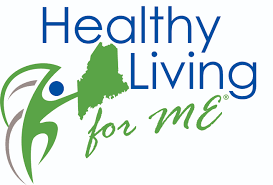Iron deficiency anaemia in pregnancy.

Are you experiencing episodes of general body weakness, lightheadedness, headaches, and shortness of breath, rapid heartbeat and strong cravings for non-food items? Do you find it difficult to concentrate? Well, you might need to visit your gynecologist for a checkup. You might be slowly slipping into anaemia, which is not good for your baby and yourself.
Iron deficiency anemia is a condition in which you don't have enough healthy red blood cells. Red blood cells contain hemoglobin, a protein that carries oxygen around your body and to your baby. During pregnancy, the volume of blood in your body increases, and so does the amount of iron you need. Your body uses iron to make more blood to supply oxygen to your baby. If you don't have enough iron stores or get enough iron during pregnancy, you could develop iron deficiency anemia.
You have anemia if your hemoglobin levels are below 11 grams per deciliter during your first and third trimesters or below 10.5 grams per deciliter in your second trimester. If left untreated, anemia during pregnancy can lead to higher risk of premature birth, low birth weight, still birth or neonatal death and even high risk of maternal death and postpartum depression. So, how can we prevent/treat iron deficiency anaemia during pregnancy?
![]() By taking a prenatal vitamin with iron.
By taking a prenatal vitamin with iron.
![]() Eating balanced diets with foods rich in iron
Eating balanced diets with foods rich in iron
![]() Blood transfusion if symptoms are severe.
Blood transfusion if symptoms are severe.
Prenatal Vitamins.
During your antenatal clinics, your healthcare provider will prescribe you a prenatal vitamin, which contains iron. In some cases, you might be recommended to take a separate iron supplement. Prenatal vitamins typically contain iron. You will need 27 milligrams of iron a day.
The supplements may give you some stomach pain, constipation and your poo may be black. This is normal and should not worry you. Always drink a lot of water and high fiber foods to relieve your constipation. You may find it easier to cope with side effects if you take the supplements with or soon after food.
Good nutrition
Good is an important factor for prevention of iron deficiency anemia during pregnancy. Eat well-balanced meals and add more foods that are high in iron to your diet.
Dietary sources of iron include lean red meat, poultry and fish, leafy, dark green vegetables (such as spinach, broccoli, and kale) iron-enriched cereals and grains, dried beans and peas, lentils, and tofu nuts and seeds eggs. Aim for at least three servings a day of iron-rich foods
The iron from animal products, such as meat, is most easily absorbed. To enhance the absorption of iron from plant sources and supplements, pair them with a food or beverage high in vitamin C — such as orange juice, tomato juice or strawberries, kiwis and bell peppers. Consider consuming those items at the same time as foods high in iron. For breakfast, you might, for instance, have a glass of orange juice and some iron-fortified cereal. Avoid orange juice that has been fortified with calcium if you take iron supplements with it. Despite being a necessary mineral during pregnancy, calcium can impair the body's ability to absorb iron.
Blood transfusion
If you are taking a prenatal vitamin that contains iron, you are eating right and still are anemic; you might probably need a blood transfusion. Testing to identify further potential causes can be advised by your healthcare practitioner. You might occasionally need to see a medical professional with experience treating blood issues (hematologist). If you have had gastric bypass or small bowel surgery in the past or are unable to tolerate oral iron supplements, you may need to have iron delivered intravenously (IV) by having a needle inserted into a vein.







